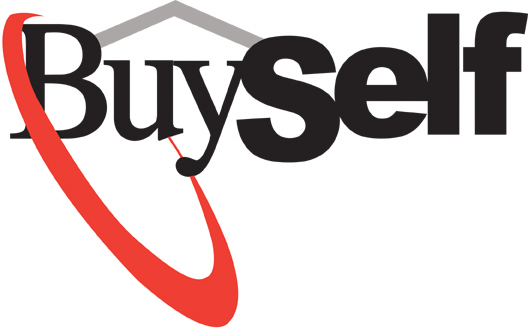When a home seller has a showing scheduled by an agent, some sellers feel the urge to be there. This is a mistake, one of the biggest mistakes a seller can make. Some sellers feel like they should be there to show the property, because no one knows the property better then they do. They want to be available to answer questions right there and then. The seller wants to make sure the buyers notice the best elements of the property (in the seller's opinion, that is). And it is their home, so some sellers would feel more comfortable being there just to keep an eye on what happens.
Sounds reasonable, but acting upon these feelings will often sabotage any chance that the buyer will put in an offer. Other uninformed sellers feel like they have a reason that makes private agent showings 'impossible', a dog, a baby, valuables or breakable items that need supervision. This is a misunderstanding that will cost a seller. Situations such as these may require a little more seller work for showings, but refusing private showings will still wreck the chances of a sale. Prudent sellers remove valuables, secure breakable items, make arrangements to remove or crate a dog, and take the children to the park, mall, or friends house.
It is important to clarify the type of showing this article discusses. Agent showings are viewings of the listing by buyers with their agent. The buyers agent arranges the showing, opens the door (generally by using a key lockbox), and escorts their buyer client through the property. As a professional, agents typically have showing-related responsibilities through both their real estate license and the Realtor Association/Multiple Listing Service rules. This article is not a discussion of unrepresented buyers, where a buyer not involved with an agent wants to see a property. In such a case, since a responsible professional will not be present, a responsible party must be at the property—typically the seller.
Buyers don't want a guided tour
All but a few of buyers dislike when the seller is at the property. A well respected real estate media source recently rated “stalker sellers” as the #1 biggest turn off to buyers. Most buyers will be polite in the seller's presence, and hurry through the showing while feeling uncomfortable. Some buyers put the brakes on the showing and just leave rather than endure a guided tour. The handful of buyers who are not offended by the seller's presence typically occur when the property generates lots of unique questions (very few properties generate unique buyer questions) and a personality type match between seller and buyer.
Buyers want to privately discuss property
Buyers expect to be able to bluntly react to the property as part of a discussion with their agent and/or family member(s). This simply isn't possible when the seller may be around—most buyers are too sensitive or polite. The seller's presence in the property short-circuits the feelings and observations that buyers want to share out loud right in the moment. The buyer's thought process is wide ranging and includes criticism and proposing changes to the property—it is not something that can be recreated later when privacy is found.
Agents know seeing the seller reduces the chance of an offer
Buyer agents are typically looking for two important attributes in a seller: (1) Motivation and (2) Cooperation. Agents want their buyer to buy a property that will make them happy and earn the agent a commission. For a buyer to buy, they must envision themselves living in the property. The private showing, where the buyer is escorted only by the agent, and does not see the seller, is ideal to help the buyer living in the property. Buyers are most relaxed, view the home at their own pace, choose their own route through the floorplan, and have the freedom to move around just like they owned the property. Free from interruption or the natural feeling a visitor feels about imposing upon a seller's personal time and personal space, buyers are primed to visualize themselves as owners. The buyers agent needs the seller to cooperate by having private showings in a property free of distraction.
Refusing to follow the norm equals Difficult Seller
The Seller's cooperation is directly related to their motivation, the other key attribute a buyer agent looks for. When a seller won't cooperate with the norm for agent showings, agents logically question the motivation of the seller—how bad do they really want to sell? If the seller really wants to sell, they would listen to their agent's suggestion about showings and cooperate. Agents all have nightmare stories about uncooperative sellers who made a transaction needlessly difficult or impossible, where the agent either had to do twice the normal amount of work, looked bad to their client, and/or didn't earn the commission they worked so hard for when the seller's lack of cooperation ruined the sale. Buyer agents are sensitive to any suggestion of a “difficult seller” so they can avoid a bad situation before they invest the time and commitment in writing an offer. Once an offer is written, an agent knows it is difficult or impossible for a buyer to walk away, and the agent will be stuck trying to work with an uncooperative seller. Some buyers also watch out for “the difficult seller” as well, as seen in this actual feedback on a listing/showing where the seller insisted on being at the showing: “[The buyers] left feeling that even if they liked the home, dealing with [the seller] would make the entire transaction so unpleasant as not to be worth the effort. This is unfortunate for the sellers because there are a great number of other attractive homes on the market in this price range. These are well-qualified buyers who are prepared to make a decision when they find the right situation." Unfortunately, like most of the common seller misconceptions that sabotage a sale, agents don't communicate feedback like this to the seller. The buyer buys a different property, and all the seller knows is that their property isn't selling. The seller doesn't get the opportunity to correct their mistake, they just wonder if their price is too high, the market is difficult, etc. The seller learns the hard way. Like the proverbial iceberg, the dangerous part of the agent unfriendly listing is what can't be seen.
The Importance of the Agent Friendly MLS Listing
The subject of seller escorted showings is just one of a long list of items where sellers must be educated to be effective in selling. Some flat fee companies lead sellers to believe that all it takes is to have a listing in the MLS, the rest takes care of itself. How untrue. And how unfortunate for sellers who take this bad advice. The seller education we provide as part of our flat fee MLS service is the reason our sellers are more successful than other flat fee brokers. Unfortunately, most flat fee brokers list the properties and don't take the time to educate their sellers on how to be effective. Just because few sellers ask for this education doesn't mean it isn't critical to sales success. Since 1998 BuySelf Realty has perfected our system of the agent friendly listing and seller education. We invented the term and concept “Agent Friendly” and are proud of the results it has achieved. Our sellers tell us that the Agent Friendly listing is BuySelf Realty's “secret sauce,” that keeps them coming back and recommending their friends.

